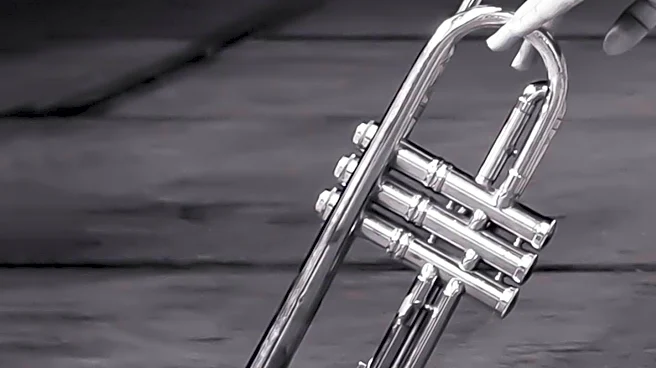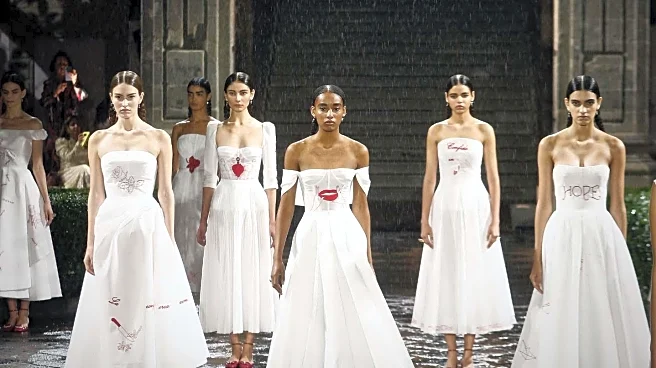What is the story about?
What's Happening?
Lisette Model, a Viennese Jewish émigré and renowned street photographer, is celebrated for her evocative images of jazz musicians and their audiences. In the early 1950s, Model embarked on a project to document jazz, intending to collaborate with Langston Hughes. However, the project was halted due to suspicions about her leftist politics, leading to an FBI investigation. Despite these challenges, Model left behind a significant collection of jazz photographs, capturing the emotional depth and societal tensions of the era. Her work includes poignant images of iconic musicians like Miles Davis and Billie Holiday, highlighting both the joy and struggles inherent in the jazz scene.
Why It's Important?
Model's photography offers a unique lens into the cultural and political landscape of mid-20th century America. Her images not only celebrate the artistry of jazz but also reflect the racial and social injustices faced by Black musicians. This duality underscores the complex role of jazz as both a symbol of American freedom and a reminder of its systemic inequalities. Model's work continues to resonate, providing historical insight and fostering discussions about the intersection of art, politics, and identity.
Beyond the Headlines
Model's experiences and the subsequent suppression of her work highlight the broader issue of artistic censorship during the McCarthy era. Her story serves as a reminder of the challenges faced by artists who confront societal norms and political pressures. Additionally, her connection with jazz musicians, many of whom experienced racial discrimination, underscores the shared struggles of marginalized communities. Model's legacy invites reflection on the power of art to document and challenge social injustices.














